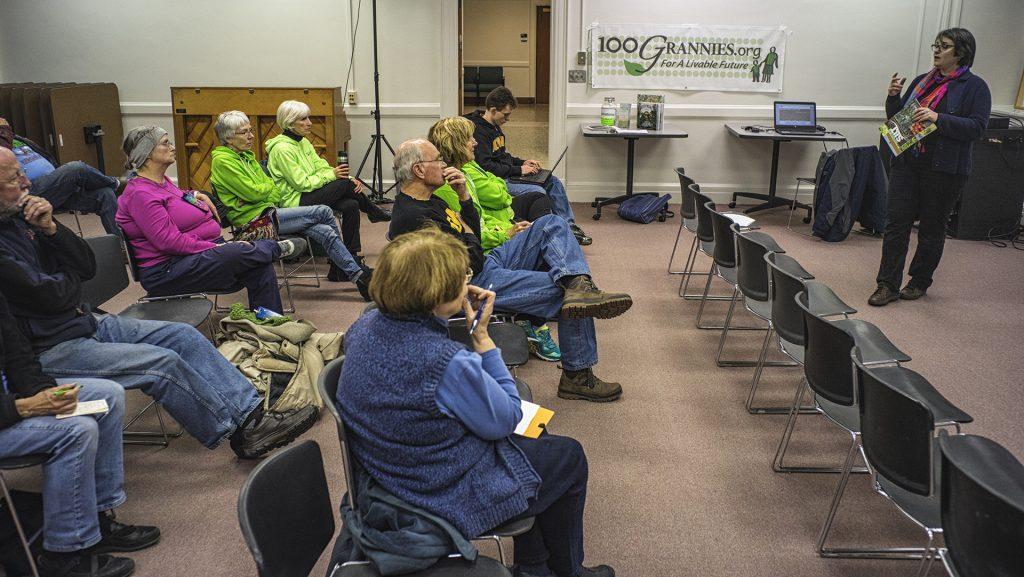The 100 Grannies of Iowa City, as part of its ongoing effort to improve the environment, hosted an adviser for the Sustainable Iowa Land Trust on Monday to discuss sustainable agriculture.
Lucie Laurian, a University of Iowa professor of urban and regional planning, spoke to a small crowd at the Iowa City Senior Center about her organization’s role in helping Iowa farmers maintain their land.
“This particular trust is dedicated to sustainable food production: any fruit, vegetable, nut, crop, anything that people can eat,” Laurian said.
SILT, founded in 2015, acquires land via donation and then protects that land, managing it to produce crops that will be shipped to markets for peoples’ consumption. Laurian said that while corn and soybeans are among the most profitable crops in Iowa, the majority of that grown in the state will be consumed by livestock.
The group also buys the easements on land, legal documents for the rights of what can be built on a farm, which eliminates the possibility of subsidizing the farm but preserves it solely for crop-producing purposes.
The SILT board is made up of an equal ratio of farmers, community members, and technical experts for the organization, such as realtors. They try not to get the state government involved to avoid any bureaucratic hassles, Laurian said.
Currently, SILT protects five farms across the state, totaling 415 acres, and it continues to expand. The members hope to incorporate their first Johnson County farm in the next few months.
Laurian began the speech by examining the difficulty farmers face in buying land, because the minimum purchase in Johnson County is 40 acres. She also discussed the practicality of urban farming, the distinctions between farming regulations in different counties, and how SILT has quickly built a degree of trust among its members and local farming communities.
SILT provides a few programs besides buying land.
“We have some advising services for farmers,” Laurian said. “We help farmers be successful financially by acquiring land, building a home, and getting loans.”
Additionally, SILT’s website hosts a form of matchmaking service in which farmers can post advertisements looking for farms to purchase, and farm owners can provide information about farms they want to sell.
Because children lose the chance to inherit farms once the land is given to the land trust, Laurian said, the decisions are often family matters, and many farmers are older with children who are somewhat uninterested in continuing the farming business.
The host organization, 100 Grannies, is an environmental activist group formed of around 100 people, mostly grandparents, who advocate for sustainable resources.
“We’re trying to limit the use of fossil fuels … renewable energy is a big focus for us,” said Becky Ross, a member of the organization. “What’s good about 100 Grannies is that we’re active.”
Her group has hosted a lecture series for six years during February on a variety of environmental subjects, but it recently switched to scheduling the talks in March.
“We take recommendations for films and lectures, and we try to have a balance of subjects,” said Becky Hall, another 100 Grannies member.
Suzan Erem, the president and cofounder of SILT and a UI graduate, was originally scheduled to speak, but she was unable to because of an illness.



